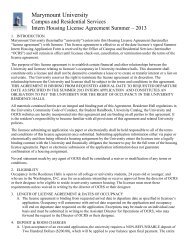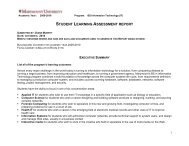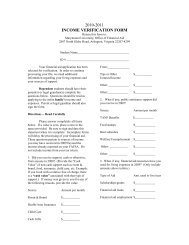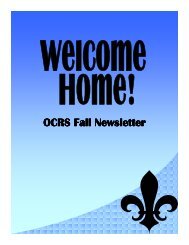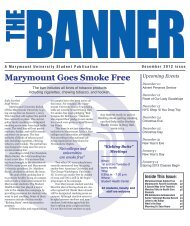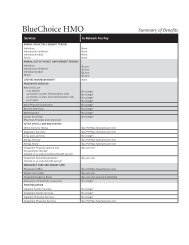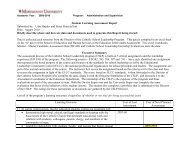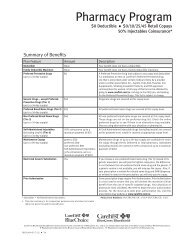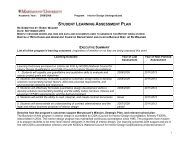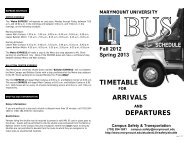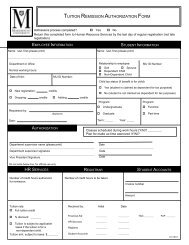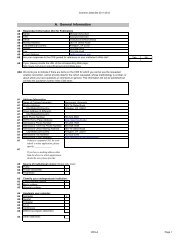EmployEE Handbook - Marymount University
EmployEE Handbook - Marymount University
EmployEE Handbook - Marymount University
You also want an ePaper? Increase the reach of your titles
YUMPU automatically turns print PDFs into web optimized ePapers that Google loves.
include consequences of not meeting the requirements of the PIP. Managers must consult<br />
HR Services before finalizing the document or meeting with the employee to discuss the<br />
PIP.<br />
Grievance Procedure<br />
A. Definition of Grievance<br />
A grievance is an allegation by a person or persons covered by the Employee<br />
<strong>Handbook</strong> that there has been a violation, misinterpretation, or misapplication of<br />
a current policy-based employee right. It is the <strong>University</strong>’s policy to resolve an<br />
employee’s work related problem(s) to the satisfaction of all parties involved.<br />
In compliance with the <strong>University</strong>’s EEO policy, if an employee feels that an<br />
employment decision is made in violation of the EEO policy, he/she shall discuss<br />
the issue with his/her department head. Depending on the circumstances, the<br />
employee may choose to pursue either a formal EEO complaint, or follow the<br />
grievance process as outlined below. The employee may not pursue both a formal<br />
EEO complaint and an intra-university grievance at the same time.<br />
If an employee experiences a work related problem or questions a <strong>University</strong> or<br />
departmental policy, the employee should refer the matter to his/her supervisor<br />
who shall attempt to resolve the matter with the employee.<br />
Although many problems can be solved informally, there is a formal grievance<br />
procedure that the employee may use as follows:<br />
B. Faculty Grievance Procedure<br />
The Faculty grievance procedure is outlined in the Faculty <strong>Handbook</strong>.<br />
C. Staff Grievance Procedure<br />
Step 1: Informal Procedure<br />
The employee will first informally discuss the grievance with his/her immediate<br />
supervisor within ten (10) workdays of becoming aware of the alleged grievable<br />
action, and the immediate supervisor should document the meeting, the<br />
discussion and any action steps that result from the discussion. Both parties<br />
should strive to arrive at a mutually agreeable settlement. If there is no mutual<br />
agreement, and the informal meeting fails to satisfy the employee, he/she may file<br />
a formal written grievance by proceeding to<br />
Step 2.<br />
Step 2: Formal Written Grievance Appeal<br />
A formal grievance appeal may be filed with the appropriate officer of the<br />
<strong>University</strong> to whom the employee’s supervisor reports. For purposes of this<br />
Section, the officers of the <strong>University</strong> include the President, the Vice President<br />
for Academic Affairs and Provost, the Vice President for Financial Affairs,<br />
the Vice President for Enrollment and Student Services, the Vice President for<br />
Development, and the Vice President for Communications and Marketing. The<br />
formal written appeal must be made in writing using the Grievance Appeal<br />
Form (available from the Office of Human Resource Services or downloadable<br />
14



